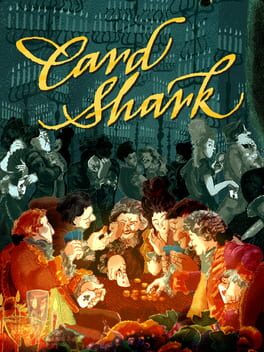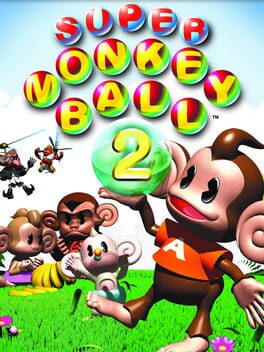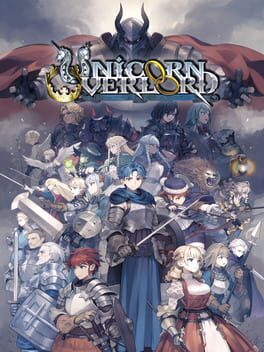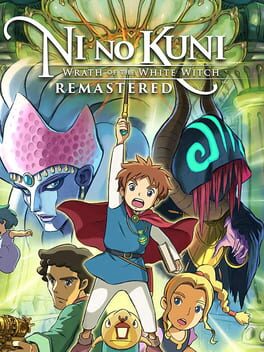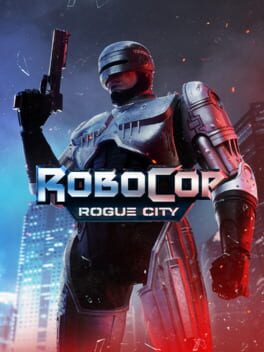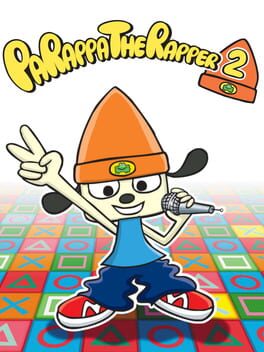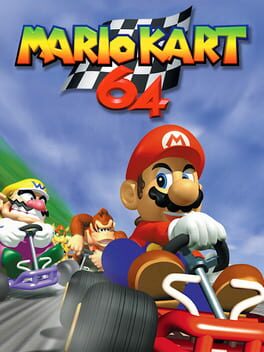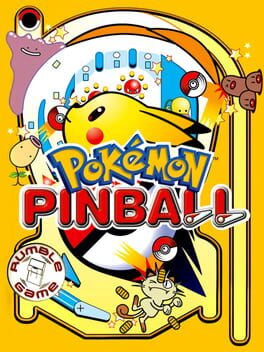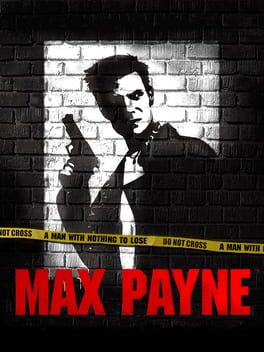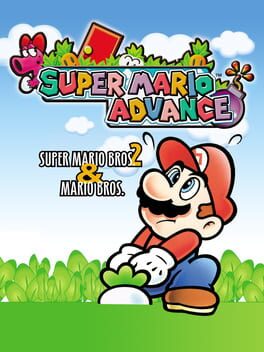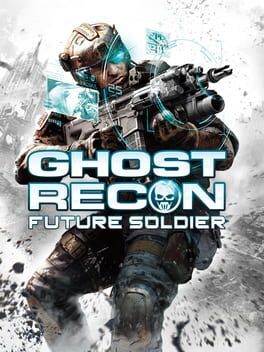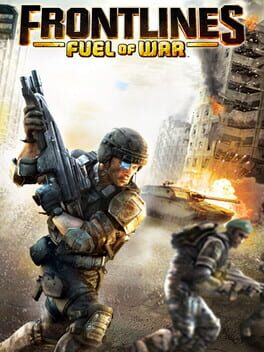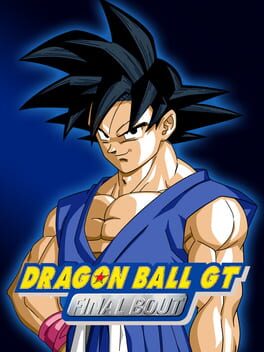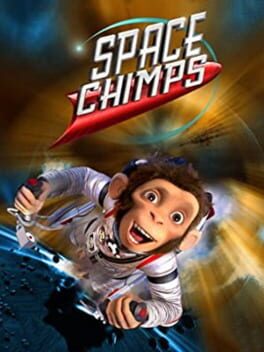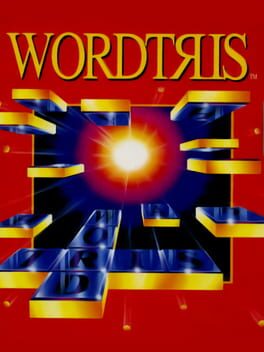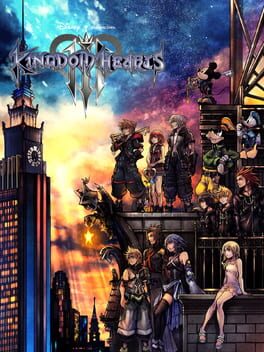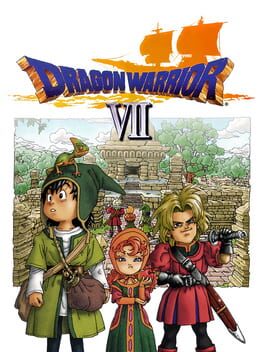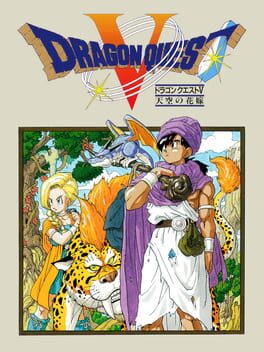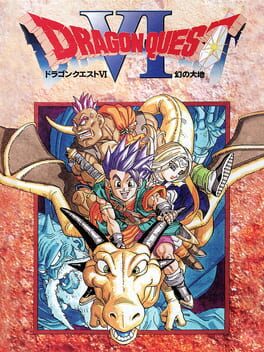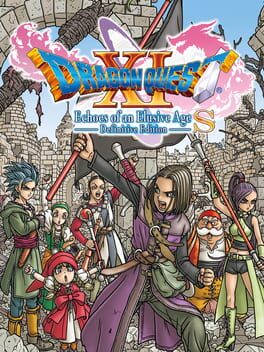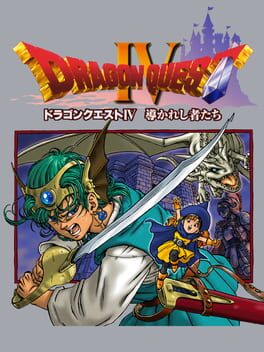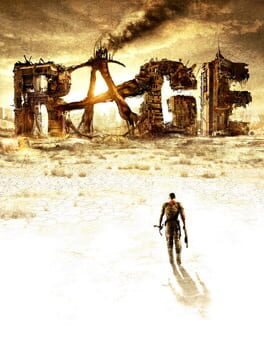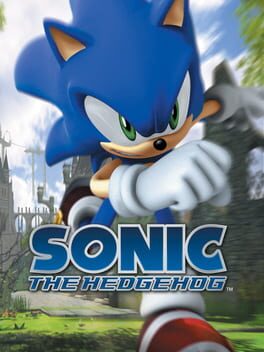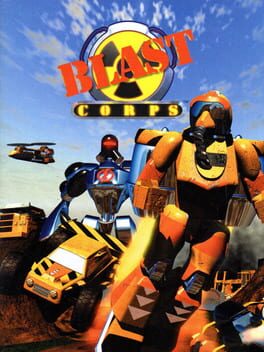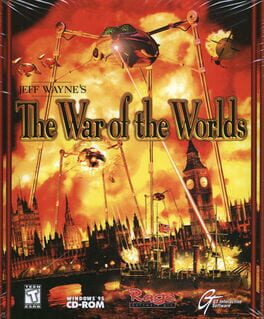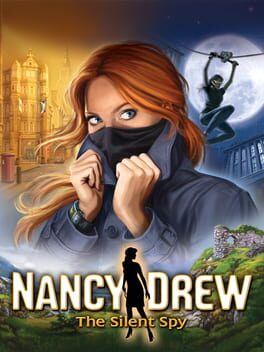Pabbleo
67 reviews liked by Pabbleo
The Silver Case
2016
This review contains spoilers
In a game, let alone continuity, lousy with sharp, confrontational artistic direction, it’s one as simple as the back of the box that continues to work its way through me. It’s the illustration of Kusabi, Sakura, and Kosaka, in particular - Sakura’s exaggerated frown extends out of the image towards you while Kusabi and Kosaka converse around her. If you’ve played the game, you’re aware that this configuration can only happen in the events proceeding the finale (a massive torpedo-spoiler on the back of the box, funny!). By extension, this also means that the illustration is, to whatever degree, a reflection on the status quo after case#5:lifecut, i.e. the chapter of the game where everything boils over, a majority of the Transmitter cast straight up dies, and radical actions by the hands of the remaining cast occur.
I love this illustration for a few reasons - for one, Takashi Miyamoto captures a sense of mundanity so well. In game, you’re never really able to bear witness to a Kusabi at peace in ordinary life, and here he’s beautifully human in his pose - well-earned after his arc through the game. Secondly, through that same focus on the mundane lies a commentary on the dynamics these characters are engaged in. I don’t think it’s much of a stretch to imply that the gender dynamics put forth here can be seen as a disappointing reminder that leaving Kusabi (love ‘em as I do) as the sole surviving veteran of the HCU means that the same bitterness which ostracized Hachisuka, possibly enabling something within to give in to her inevitable death-filing and appearance as Ayame, is likely still in the air. But these observations pale, in my opinion, to the context.
As she continues ascending the 24th Ward’s crime department, after bearing witness to the very operation that almost(/successfully?) doomed her and the player character to a life of artificial personhood, and after witnessing the takedown of the two major antagonists of the game, Nezu and (eventually) Uminosuke, she still frowns at us, the player. Why? I thought danwa was a happy ending.
-
TSC is one of few games I can think of that really eludes simple genre description. Sure, it’s a crime procedural, up until it isn’t. It’s a conspiracy thriller... in spots. It’s Lynchian surrealist dystopia? Alright we’re just gonna say words now, I guess? The only thing that comes to mind for descriptors is, like, slipstream fiction, which, given 25W references seminal proto-Cyberpunk novella The Girl Who Was Plugged In, seems apt enough to settle on. I won’t even evoke the P-word. The one that rhymes with “toast auburn.”
But really, this thought exercise is all just a veiled move to get you to wonder about the limitation of genre fiction as it applies to TSC, and poke at its aspirations. For this to be a standard crime procedural, you’d expect the HCU to... function in some capacity? And conspiracy thriller’s a no-go considering the weight that spirituality and all other intangibles have here, in my opinion. The way I’ll continue from this point to put it is thus: the Mikumo 77 incident, the murder of Kamui by the underworld factions, and the ensuing Shelter Kids policy reverberate through the story on many different frequencies, and the effect of it all is so bleak that only genre convention can make the discussion palatable as fiction. But it doesn’t always cover it: the melancholic, ambling work of Tokio through Placebo, the brain-swelling conflict of information in Transmitter, I think both serve as a reminder that there’s no easy out from underneath the sin of government control. It’s no surprise, I guess, that the symptoms get much, much worse when we return to Kanto in The 25th Ward.
-
Kamuidrome thru danwa (and the equivalent reports from Placebo’s end) are so dizzying and hard to come to terms with that I have literally shaved my head since first playing this game. This is actually true! I have death-filed!
That said, I feel like an essential piece of advice I could give someone who’s in for their first time is to enact judgment on the information based on who and when it’s coming from. This is easy enough in some cases - I think most people are primed from birth to hate pedo-fascist Nakategawa enough to not mind his words. But even fan-favorite Kusabi, for instance... this entire game is a slow fade-to-white for him as he unlearns an entire ideology of criminality equating plague, one he’s enforced so much with violence, not just as a cop, but as a particularly fucked up cop. In the beginning, I wouldn’t blame you for sticking with the competent elder authority of the cast, but if the ending moments of Parade don’t convince you to question the prior chapters, then I don’t know what will. The state of this world can be figured out with relative certainty as long as you keep track of where you are in the game’s web.
Though deeply confusing (& not helped by a localization that I can only describe as “challenging” (no shade to Grasshopper James btw, I can only imagine trying to piece this together 😭)), this game masterfully tiers up its information in a way that makes the trek through the underbelly of the 24th Ward feel so uniquely haunting. While certain aspects (the bench-warming faction war at the batting center comes to mind) do feel a bit bizarre and maybe even underdeveloped as words on a (cyber)page, the thematic tapestry of this game is exceptionally rich, even among other lauded-for-thematic-richness games. I’m a lifelong MGS fan and even I have to admit that after coming to conclusions confident enough to type words about, I think we might be seeing a lunch-eating of unseen proportions.
I love this illustration for a few reasons - for one, Takashi Miyamoto captures a sense of mundanity so well. In game, you’re never really able to bear witness to a Kusabi at peace in ordinary life, and here he’s beautifully human in his pose - well-earned after his arc through the game. Secondly, through that same focus on the mundane lies a commentary on the dynamics these characters are engaged in. I don’t think it’s much of a stretch to imply that the gender dynamics put forth here can be seen as a disappointing reminder that leaving Kusabi (love ‘em as I do) as the sole surviving veteran of the HCU means that the same bitterness which ostracized Hachisuka, possibly enabling something within to give in to her inevitable death-filing and appearance as Ayame, is likely still in the air. But these observations pale, in my opinion, to the context.
As she continues ascending the 24th Ward’s crime department, after bearing witness to the very operation that almost(/successfully?) doomed her and the player character to a life of artificial personhood, and after witnessing the takedown of the two major antagonists of the game, Nezu and (eventually) Uminosuke, she still frowns at us, the player. Why? I thought danwa was a happy ending.
-
TSC is one of few games I can think of that really eludes simple genre description. Sure, it’s a crime procedural, up until it isn’t. It’s a conspiracy thriller... in spots. It’s Lynchian surrealist dystopia? Alright we’re just gonna say words now, I guess? The only thing that comes to mind for descriptors is, like, slipstream fiction, which, given 25W references seminal proto-Cyberpunk novella The Girl Who Was Plugged In, seems apt enough to settle on. I won’t even evoke the P-word. The one that rhymes with “toast auburn.”
But really, this thought exercise is all just a veiled move to get you to wonder about the limitation of genre fiction as it applies to TSC, and poke at its aspirations. For this to be a standard crime procedural, you’d expect the HCU to... function in some capacity? And conspiracy thriller’s a no-go considering the weight that spirituality and all other intangibles have here, in my opinion. The way I’ll continue from this point to put it is thus: the Mikumo 77 incident, the murder of Kamui by the underworld factions, and the ensuing Shelter Kids policy reverberate through the story on many different frequencies, and the effect of it all is so bleak that only genre convention can make the discussion palatable as fiction. But it doesn’t always cover it: the melancholic, ambling work of Tokio through Placebo, the brain-swelling conflict of information in Transmitter, I think both serve as a reminder that there’s no easy out from underneath the sin of government control. It’s no surprise, I guess, that the symptoms get much, much worse when we return to Kanto in The 25th Ward.
-
Kamuidrome thru danwa (and the equivalent reports from Placebo’s end) are so dizzying and hard to come to terms with that I have literally shaved my head since first playing this game. This is actually true! I have death-filed!
That said, I feel like an essential piece of advice I could give someone who’s in for their first time is to enact judgment on the information based on who and when it’s coming from. This is easy enough in some cases - I think most people are primed from birth to hate pedo-fascist Nakategawa enough to not mind his words. But even fan-favorite Kusabi, for instance... this entire game is a slow fade-to-white for him as he unlearns an entire ideology of criminality equating plague, one he’s enforced so much with violence, not just as a cop, but as a particularly fucked up cop. In the beginning, I wouldn’t blame you for sticking with the competent elder authority of the cast, but if the ending moments of Parade don’t convince you to question the prior chapters, then I don’t know what will. The state of this world can be figured out with relative certainty as long as you keep track of where you are in the game’s web.
Though deeply confusing (& not helped by a localization that I can only describe as “challenging” (no shade to Grasshopper James btw, I can only imagine trying to piece this together 😭)), this game masterfully tiers up its information in a way that makes the trek through the underbelly of the 24th Ward feel so uniquely haunting. While certain aspects (the bench-warming faction war at the batting center comes to mind) do feel a bit bizarre and maybe even underdeveloped as words on a (cyber)page, the thematic tapestry of this game is exceptionally rich, even among other lauded-for-thematic-richness games. I’m a lifelong MGS fan and even I have to admit that after coming to conclusions confident enough to type words about, I think we might be seeing a lunch-eating of unseen proportions.
Card Shark
2022
Super Monkey Ball 2
2002
Unicorn Overlord
2024
Skate 3
2010
I try not to let back-of-the-box sales pitches excite me before I experience a piece of media with eyes unclouded by expectations, but put yourself in my shoes for just a moment. My favorite video game of all time is Dragon Quest VIII: Journey of the Cursed King. My favorite film is My Neighbor Totoro, and really just the entire filmography of Hayao Miyazaki. My favorite video game genre is the Japanese Role Playing Game.
What is Ni No Kuni: Wrath of the White Witch? Well, it’s a JRPG developed by the people who made Dragon Quest VIII in collaboration with Studio Ghibli (creators of films like My Neighbor Totoro) for art direction and Joe Hisaishi (composer for Hayao Miyazaki’s film lineup).I try to not let hype get to me, but I am only human. That is the perfect storm to create something that I will love, and thankfully enough- it did!
Ni No Kuni is a treat. I could nitpick elements of it til the end of time if I tried. The battle system isn’t very deep or interesting, the cel-shaded 3D models show their age at points, there are a few QOL features that would’ve gone a long way, etc. But I just.. Don’t care?
Why even bother focusing on points like that when the adventure presented here is so much fun, is so earnest and heartfelt, has a great protagonist with a compelling story with equal part silly fun and genuine tension, is satisfying to play and immerse yourself in, is perfectly paced and is the right length, has outstanding art direction and music, and is just a nice time.
The first note here will be pretty short, but the 2D animated cutscenes are so wonderful. Ghibli is and will always be wonderful. This is no exception. Joe Hisaishi’s score admittedly proved to me he is best at film composition compared to a game where you don’t have as much control of the emotion presented, and yet even bringing up that ‘criticism’ is so silly because the music here was so lovely and perfect. Another hit by the man who never misses.
Outside from that though, this game feels like the developers knew they could just make something they wanted to make knowing attaching Ghibli would automatically market the game to a huge audience, so they just played around with all the things they loved about JRPGs. The structure is very Dragon Quest, there is monster collecting like a Pokemon, SMT, DQM, etc., the combat blends turn-based and real time very akin to something like Final Fantasy XII, and the overworld feels straight out of the Playstation 1 era. As someone who loves JRPGs dearly, this really resonated with me because it was a little taste of all the stuff I loved with a team so lovingly putting it together that you feel it yourself.
I loved the narrative and all the characters and character moments along the way. The idea of finding people with excesses of positive emotions to give their spirit to those lacking them is so ingenious and never got old to me. I felt so compelled to do side missions as they gave you extra perks like increasing item drops or movement speed- which are really fun and tangible rewards for investing yourself in the world extra. While the story is definitely on the linear side of things, it still gives you the freedom to explore around, compose parties, and do content in a very player-guided manner- and I loved it. I just have a lot of love for the game as a whole.
That is the ultimate statement I am trying to present here. I just love this game, because it loves me back. It is pretty much everything that works for me on display here. Despite the dream team combo of developers, it still doesn’t quite rank next to my all time favorites- but it didn’t need to. For just being a really fun, lovely JRPG- it does its job excellently. I had such a great time, and I give it a high recommendation.
Just don’t get the Platinum trophy for it like I did the item grind in postgame is brutal
Anyways, wonderful game
What is Ni No Kuni: Wrath of the White Witch? Well, it’s a JRPG developed by the people who made Dragon Quest VIII in collaboration with Studio Ghibli (creators of films like My Neighbor Totoro) for art direction and Joe Hisaishi (composer for Hayao Miyazaki’s film lineup).I try to not let hype get to me, but I am only human. That is the perfect storm to create something that I will love, and thankfully enough- it did!
Ni No Kuni is a treat. I could nitpick elements of it til the end of time if I tried. The battle system isn’t very deep or interesting, the cel-shaded 3D models show their age at points, there are a few QOL features that would’ve gone a long way, etc. But I just.. Don’t care?
Why even bother focusing on points like that when the adventure presented here is so much fun, is so earnest and heartfelt, has a great protagonist with a compelling story with equal part silly fun and genuine tension, is satisfying to play and immerse yourself in, is perfectly paced and is the right length, has outstanding art direction and music, and is just a nice time.
The first note here will be pretty short, but the 2D animated cutscenes are so wonderful. Ghibli is and will always be wonderful. This is no exception. Joe Hisaishi’s score admittedly proved to me he is best at film composition compared to a game where you don’t have as much control of the emotion presented, and yet even bringing up that ‘criticism’ is so silly because the music here was so lovely and perfect. Another hit by the man who never misses.
Outside from that though, this game feels like the developers knew they could just make something they wanted to make knowing attaching Ghibli would automatically market the game to a huge audience, so they just played around with all the things they loved about JRPGs. The structure is very Dragon Quest, there is monster collecting like a Pokemon, SMT, DQM, etc., the combat blends turn-based and real time very akin to something like Final Fantasy XII, and the overworld feels straight out of the Playstation 1 era. As someone who loves JRPGs dearly, this really resonated with me because it was a little taste of all the stuff I loved with a team so lovingly putting it together that you feel it yourself.
I loved the narrative and all the characters and character moments along the way. The idea of finding people with excesses of positive emotions to give their spirit to those lacking them is so ingenious and never got old to me. I felt so compelled to do side missions as they gave you extra perks like increasing item drops or movement speed- which are really fun and tangible rewards for investing yourself in the world extra. While the story is definitely on the linear side of things, it still gives you the freedom to explore around, compose parties, and do content in a very player-guided manner- and I loved it. I just have a lot of love for the game as a whole.
That is the ultimate statement I am trying to present here. I just love this game, because it loves me back. It is pretty much everything that works for me on display here. Despite the dream team combo of developers, it still doesn’t quite rank next to my all time favorites- but it didn’t need to. For just being a really fun, lovely JRPG- it does its job excellently. I had such a great time, and I give it a high recommendation.
Just don’t get the Platinum trophy for it like I did the item grind in postgame is brutal
Anyways, wonderful game
RoboCop: Rogue City
2023
When this started with the suicide hotline number I thought, "ah, I'm no doubt in for a thoughtful and nuanced depiction of mental illness!"
At one point there's a scene where the main character freaks out about her follower count and people commenting, like, "no sexy pics no followers!!!" and i refuse to believe no one on the dev team said "hey is this stupid? is this fucking stupid you guys?"
At one point there's a scene where the main character freaks out about her follower count and people commenting, like, "no sexy pics no followers!!!" and i refuse to believe no one on the dev team said "hey is this stupid? is this fucking stupid you guys?"
PaRappa the Rapper 2
2001
Replayed on a whim because I couldn't sleep. I think Parappa 1 is a bit of a lightning in a bottle experience, but this is about as good a follow up as you could get. Ramps up the silliness in creative ways, still fun as ever, and the music presented here is pretty great. The second half of songs is not quite as good but the first half rivals, if not tops the first games. Big is my favorite stage in the series. Great time to be had here
6 lists liked by Pabbleo
by letshugbro |
10 Games
by letshugbro |
5 Games
by letshugbro |
101 Games
by appstore |
10 Games
by letshugbro |
15 Games

